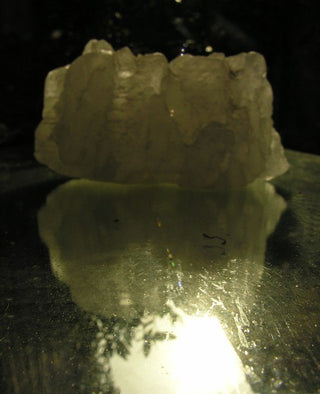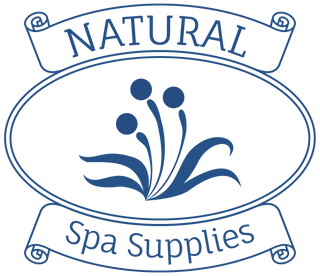 How to reduce your aluminium exposure
Most of our aluminium exposure is through our food and water, so this is the area to focus on if you are concerned about having high aluminium levels. Even poorly made antiperspirants will only account for about 2.5% of your daily aluminium intake,
1/ Reduce you intake of foods containing aluminium additives such as pickles where aluminium sulphate or other aluminium compounds are added as a preservative.
2/ Reduce your consumption of drinks packed in aluminium cans and tinned foods.
3/ Exercise more caution with foods, such as take away food packed in aluminium trays – transfer them into steel pans before cooking or reheating.
4/ Try to replace you aluminium cookware f you haven’t already. Try to avoid cooking acid foods in aluminium cookware i.e. tomato based foods, acidic fruits and cabbage.
5/ Be aware that Teflon coated pans are often aluminium underneath. Never use Teflon pans when they are scratched. I’m trying to convert my cookware to steel, glass, cast iron and clay.
6/ If you buy prepared fruits juices, it is worth cutting open an empty carton to see whether the lining contains aluminium or plastic. Quite honestly I’m not keen on either form of packaging and I prefer to squeeze a lemon in the morning or make raw juices from fresh fruit.
7/ Many bakery products contain aluminium such as baking powder (apparently you can get aluminium free versions) and self raising flour. Beware of pastries and pizza bases. Make your own pizzas from scratch – it’s so easy.
8/ Antacids are high in aluminium and may cause elevated aluminium levels.
9/ Try to avoid processed cheese and do not drink excessive levels of tea or even green tea.
10/ Many other products are packed in aluminium – crisps, dried fruit, soups and the more you look the more you see.
How to reduce your aluminium exposure
Most of our aluminium exposure is through our food and water, so this is the area to focus on if you are concerned about having high aluminium levels. Even poorly made antiperspirants will only account for about 2.5% of your daily aluminium intake,
1/ Reduce you intake of foods containing aluminium additives such as pickles where aluminium sulphate or other aluminium compounds are added as a preservative.
2/ Reduce your consumption of drinks packed in aluminium cans and tinned foods.
3/ Exercise more caution with foods, such as take away food packed in aluminium trays – transfer them into steel pans before cooking or reheating.
4/ Try to replace you aluminium cookware f you haven’t already. Try to avoid cooking acid foods in aluminium cookware i.e. tomato based foods, acidic fruits and cabbage.
5/ Be aware that Teflon coated pans are often aluminium underneath. Never use Teflon pans when they are scratched. I’m trying to convert my cookware to steel, glass, cast iron and clay.
6/ If you buy prepared fruits juices, it is worth cutting open an empty carton to see whether the lining contains aluminium or plastic. Quite honestly I’m not keen on either form of packaging and I prefer to squeeze a lemon in the morning or make raw juices from fresh fruit.
7/ Many bakery products contain aluminium such as baking powder (apparently you can get aluminium free versions) and self raising flour. Beware of pastries and pizza bases. Make your own pizzas from scratch – it’s so easy.
8/ Antacids are high in aluminium and may cause elevated aluminium levels.
9/ Try to avoid processed cheese and do not drink excessive levels of tea or even green tea.
10/ Many other products are packed in aluminium – crisps, dried fruit, soups and the more you look the more you see.

How can Alum Crystals can help reduce my Aluminium Exposure?
 How to reduce your aluminium exposure
Most of our aluminium exposure is through our food and water, so this is the area to focus on if you are concerned about having high aluminium levels. Even poorly made antiperspirants will only account for about 2.5% of your daily aluminium intake,
1/ Reduce you intake of foods containing aluminium additives such as pickles where aluminium sulphate or other aluminium compounds are added as a preservative.
2/ Reduce your consumption of drinks packed in aluminium cans and tinned foods.
3/ Exercise more caution with foods, such as take away food packed in aluminium trays – transfer them into steel pans before cooking or reheating.
4/ Try to replace you aluminium cookware f you haven’t already. Try to avoid cooking acid foods in aluminium cookware i.e. tomato based foods, acidic fruits and cabbage.
5/ Be aware that Teflon coated pans are often aluminium underneath. Never use Teflon pans when they are scratched. I’m trying to convert my cookware to steel, glass, cast iron and clay.
6/ If you buy prepared fruits juices, it is worth cutting open an empty carton to see whether the lining contains aluminium or plastic. Quite honestly I’m not keen on either form of packaging and I prefer to squeeze a lemon in the morning or make raw juices from fresh fruit.
7/ Many bakery products contain aluminium such as baking powder (apparently you can get aluminium free versions) and self raising flour. Beware of pastries and pizza bases. Make your own pizzas from scratch – it’s so easy.
8/ Antacids are high in aluminium and may cause elevated aluminium levels.
9/ Try to avoid processed cheese and do not drink excessive levels of tea or even green tea.
10/ Many other products are packed in aluminium – crisps, dried fruit, soups and the more you look the more you see.
How to reduce your aluminium exposure
Most of our aluminium exposure is through our food and water, so this is the area to focus on if you are concerned about having high aluminium levels. Even poorly made antiperspirants will only account for about 2.5% of your daily aluminium intake,
1/ Reduce you intake of foods containing aluminium additives such as pickles where aluminium sulphate or other aluminium compounds are added as a preservative.
2/ Reduce your consumption of drinks packed in aluminium cans and tinned foods.
3/ Exercise more caution with foods, such as take away food packed in aluminium trays – transfer them into steel pans before cooking or reheating.
4/ Try to replace you aluminium cookware f you haven’t already. Try to avoid cooking acid foods in aluminium cookware i.e. tomato based foods, acidic fruits and cabbage.
5/ Be aware that Teflon coated pans are often aluminium underneath. Never use Teflon pans when they are scratched. I’m trying to convert my cookware to steel, glass, cast iron and clay.
6/ If you buy prepared fruits juices, it is worth cutting open an empty carton to see whether the lining contains aluminium or plastic. Quite honestly I’m not keen on either form of packaging and I prefer to squeeze a lemon in the morning or make raw juices from fresh fruit.
7/ Many bakery products contain aluminium such as baking powder (apparently you can get aluminium free versions) and self raising flour. Beware of pastries and pizza bases. Make your own pizzas from scratch – it’s so easy.
8/ Antacids are high in aluminium and may cause elevated aluminium levels.
9/ Try to avoid processed cheese and do not drink excessive levels of tea or even green tea.
10/ Many other products are packed in aluminium – crisps, dried fruit, soups and the more you look the more you see.

